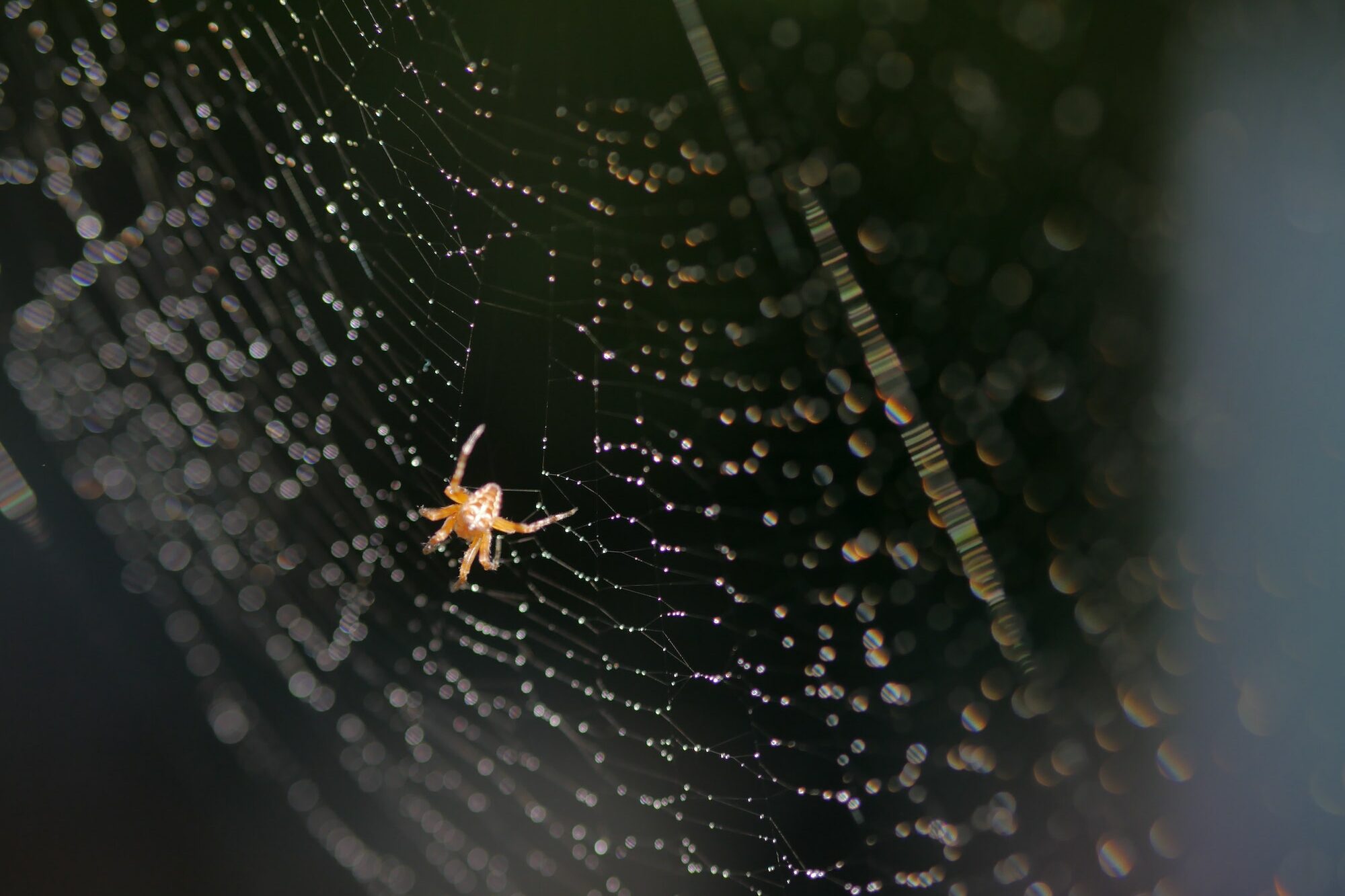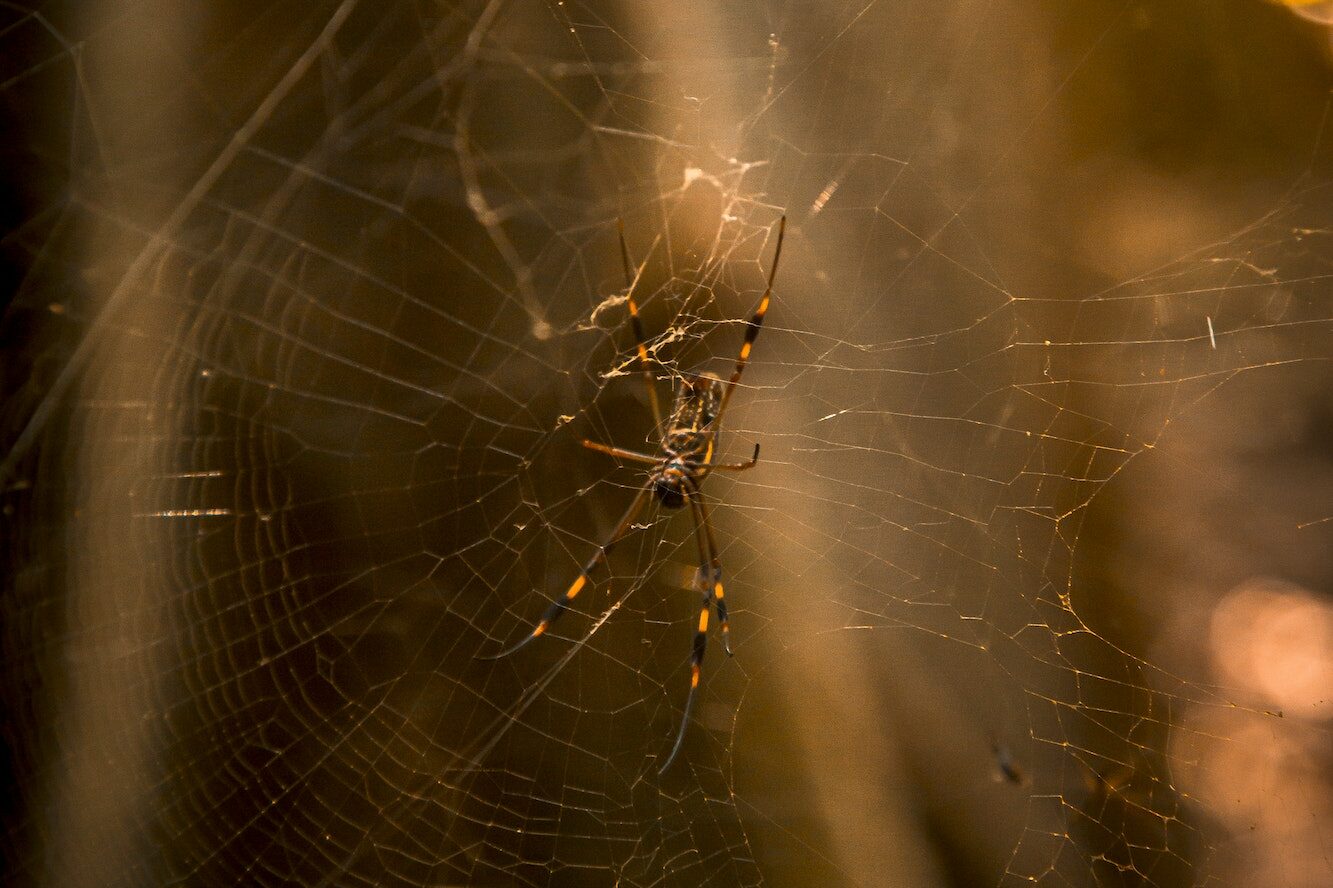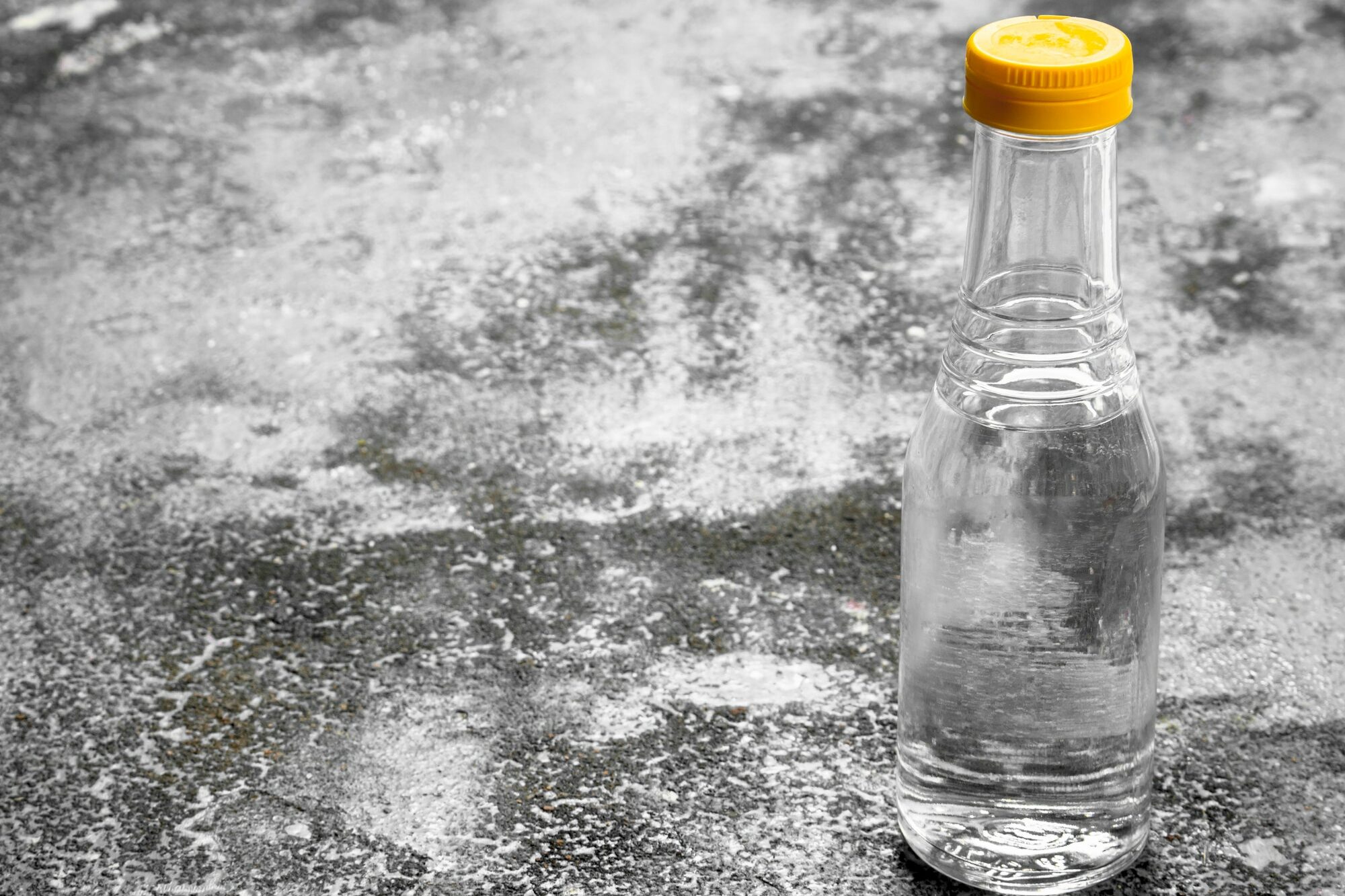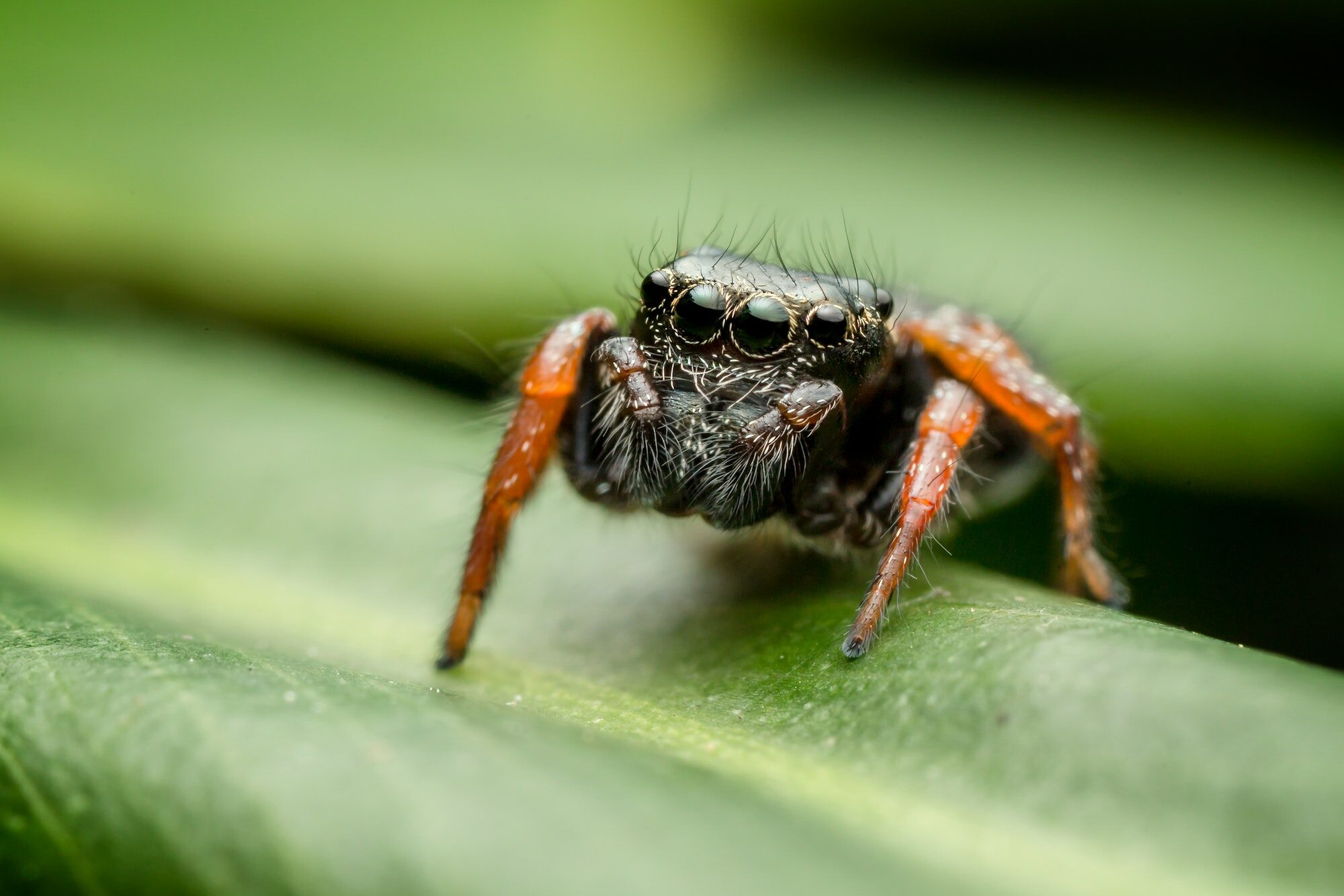Spiders are a common sight on boats. They love to spin webs in the corners, create nests in crevices, and crawl around, creating a nuisance for boaters. If you’re someone who gets creeped out by spiders, you’re probably looking for ways to keep them off your boat. Fortunately, several effective methods exist to keep spiders away from your boat, ranging from natural remedies to chemical solutions. In this article, we’ll explore some of the best ways to keep spiders off your boat.
Reasons Spiders Are Attracted to Boats
Spiders are drawn to your boat due to two primary attractions – the availability of food and safe shelter. Your boat can be a haven for a variety of insects due to the lights, equipment, and warmth. This influx of insects constitutes a consistent food supply that entices spiders closer to your boat and encourages them to establish residence.
Apart from the available food, the infrequent use of boats provides the perfect shelter for spiders. Boats offer multiple hiding spots, such as crevices, ropes, and outdoor equipment storage, which are ideal for making webs and laying eggs. Over time, these factors transform your beloved watercraft into an attractive spider’s paradise, hence the bother of continuous spider invasion.

The Problem with Spiders on Boats
Spider invasions on your boat go beyond the challenges of the associated fear and disgust. When spiders take up habitation on your boat, a rapid multiplication often follows. Before you know it, the spiders have left your boat covered in spider feces and spider webs. This not only affects the aesthetics of your boat but could also impact its resale value negatively.
Moreover, there are health hazards associated with spiders. While not all spiders are venomous, certain species, like the Brown Recluse and the Black Widow carry venom that can be harmful to humans. The presence of such spiders on your boat can pose a risk to you and your loved ones. Therefore, keeping your boat spider-free is paramount for both maintenance and health reasons.

Spider Prevention Strategies
Prevention is undoubtedly better than cure. Keeping your boat spider-free requires implementing preventative measures that address the reasons spiders are attracted to boats in the first place. These strategies may vary depending on your boat’s unique circumstances, but generally, they involve maintaining cleanliness and utilizing deterrents that keep spiders away.
Keeping Your Boat Clean
Build a commitment to keeping your boat clean. Eliminating food sources and minimizing clutter can make your boat less inviting to spiders. Regularly clean surfaces to eliminate spider webs and keep the area tidy. Most importantly, ensure proper sanitation to discourage other pests that might serve as food for spiders.
Boat care also extends to the storage areas. Frequently inspecting all compartments, surfaces, and storage areas where spiders are likely to reside can help eliminate any potential infestations before they get out of hand. Additionally, if you’re docking your boat for a while, wrapping it in an appropriate boat cover can prevent spiders from accessing your boat.
Natural Spider Repellents for Boats
If you prefer to use natural remedies to keep spiders off your boat, there are several options available. Here are five natural spider repellents that are safe and effective.
Vinegar
Vinegar is a versatile natural remedy that can be used to repel spiders. Mix equal water and white vinegar in a spray bottle and apply the solution around your boat’s corners and crevices. The vinegar smell is known to deter spiders and insects from entering your boat.
Citrus
Citrus fruits such as lemons and oranges have a strong scent that spiders don’t like. Squeeze the juice of a lemon or an orange and apply it around your boat’s interior and exterior. You can also place citrus peels in areas where spiders are commonly found to repel them.
Cedarwood
Cedarwood is a natural insect repellent that has been used for centuries. The scent of cedarwood oil is known to repel spiders and other insects. Apply a few drops of cedarwood oil to cotton balls and place them in areas where spiders are commonly found.
Eucalyptus
Eucalyptus oil is another natural spider repellent that has a strong scent. Mix a few drops of eucalyptus oil with water in a spray bottle and apply it around your boat’s interior and exterior. You can also place eucalyptus leaves or branches in areas where spiders are commonly found.

Essential Oils for Spider Control
Concentrated plant extracts called essential oils can be used to drive off spiders. Here are three essential oils that are effective at controlling spider infestations.
Lavender Oil
Lavender oil has a calming effect on spiders and can be used to repel them. Spray the interior and exterior of your boat with a solution made by blending a few drops of lavender oil with water in a spray bottle.
Tea Tree Oil
Tea tree oil is a powerful essential oil that can be used to repel spiders. Mix a few drops of tea tree oil with water in a spray bottle and apply it around your boat’s corners and crevices.
Peppermint Oil
Peppermint oil is also an essential oil that can be used to repel spiders. Spray the interior and exterior of your boat with a solution made by combining a few drops of peppermint oil with water in a spray bottle.

Spider Deterrents and Traps
If natural remedies and essential oils aren’t enough to keep spiders off your boat, you can also use spider deterrents and traps. Here are three types of spider deterrents and traps that are effective.
Ultrasonic Spider Repellers
Ultrasonic spider repellers emit high-frequency sound waves that spiders can’t stand. These devices are easy to use and plug into an electrical outlet. They are also safe for humans and pets.
Sticky Traps
Sticky traps are sheets of paper coated with a sticky substance that traps spiders and other insects. These traps are placed in areas where spiders are commonly found, and they are effective at catching them.
Glue Traps
Glue traps are similar to sticky traps, but they are more potent. These traps contain a glue-like substance that spiders and other insects get stuck on. Glue traps are effective at catching spiders and other insects, but they can be messy to clean up.

Chemical Solutions for Spider Control
If natural remedies, essential oils, and spider deterrents and traps aren’t effective, you can use chemical solutions to control spiders on your boat. Here are three types of chemical solutions that are effective.
Pesticides
Pesticides are chemicals intended to kill spiders and other insects. They come in spray form and can be applied directly to areas where spiders are commonly found. However, pesticides can harm humans and pets, so it’s essential to use them cautiously.
Insecticidal Sprays
Insecticidal sprays are similar to pesticides, but they are less potent. They are designed to repel spiders and other insects rather than kill them. Insecticidal sprays are a safer alternative to pesticides, but they may not be as effective.
Dusts
Dusts are powders designed to be applied to areas where spiders are commonly found. They work by dehydrating spiders and other insects, which eventually leads to their death. Dusts are a safer alternative to pesticides and insecticidal sprays but may be less effective.

Dealing with Existing Spider Infestations
If spider prevention measures fail and your boat has become a spider-infested harbor, it’s time to take action. Dealing with an existing infestation involves careful web removal, identifying the spiders aboard your boat, and applying effective spider extermination techniques.
Identifying Spider Species on Your Boat
A crucial part of dealing with spider infestation is identifying the species you’re dealing with. Different spiders respond differently to pest removal techniques. Knowledge about the species helps you understand the spider’s behavior, breeding cycles, and preferred habitats, info that can be beneficial when trying to eradicate them.
DIY Spider Removal Techniques
If hiring professional pest control services is not your cup of tea or beyond your budget, there’s a range of DIY spider removal techniques that you can employ. These methods anchor on your understanding of spider behavior and biology and exploit this knowledge to systematically reduce or eliminate the spider population on your boat.
Hiring Professional Pest Control Services
In severe cases, or when DIY spider’ removal seems overwhelming or ineffective, you can seek the services of professional pest control companies. These agencies present a hassle-free way of reclaiming your boat that’s swarming with spiders. Armed with expert knowledge and specialized tools, they can deal with the infestation in a targeted and efficient manner.
Conclusion
Spiders, despite being essential parts of the ecosystem, are unwelcome guests on your boat. From maintaining your boat’s visual appeal to protecting the health of onboard passengers, keeping these arachnids off your boat is crucial. With understanding, prevention strategies, appropriate deterrents, and regular maintenance, you can enjoy a spider-free boating experience.
FAQs
Can spiders harm me or my passengers on the boat?
Most spiders are not harmful to humans, but some can deliver a painful or poisonous bite. It’s best to avoid contact with spiders if possible.
How can you clean spider poop off boat seats?
f you’re dealing with spider poop on your boat seats, don’t worry; there are a few simple steps you can take to clean it up and restore your seats to their former glory.
First things first, it’s best to start by removing any loose debris or spider webs with a dry cloth or vacuum. Once you’ve done that, it’s time to mix up a solution of warm water and mild soap or detergent. Be sure to use a soft-bristled brush to gently scrub the affected area, working in small circles to avoid damaging the upholstery.
Once you’ve finished scrubbing, rinse the seats thoroughly with clean water, and then allow them to air dry completely before using them again. If you’re still seeing stubborn stains or discoloration, don’t worry. There are specialized upholstery cleaners available that can help you get the job done. Just be sure to follow the manufacturer’s instructions carefully to avoid any damage to your boat seats.
Are spider deterrents and traps safe for pets?
Spider deterrents and traps can effectively control spider populations, but pet owners should know that some products may not be safe for their furry friends.
Most spider deterrents sold over the counter contain chemicals that can harm pets if ingested or inhaled. Additionally, some types of spider traps use sticky substances that can cause skin irritation or digestive problems if a pet comes into contact with them.
If you’re considering using spider deterrents or traps in your home, it’s important to read the label carefully and look for products labeled as safe for use around pets. You may also want to consider using natural alternatives, such as essential oils or vinegar, which are generally considered safer for pets.
Can I use natural spider repellents and chemical solutions together?
It’s generally not recommended to use natural spider repellents and chemical solutions together, as the combination of different products can potentially lead to harmful effects.
Using multiple products at the same time can increase the concentration of chemicals in the air or on surfaces, potentially exposing you and your pets to harmful substances. Additionally, some chemicals may interact with each other in unpredictable ways, leading to dangerous reactions or reduced effectiveness of the products.
What scent drives spiders away?
Spiders are not averse to the smell of citrus. Many people use orange or lemon peels in their drawers and cupboards to keep spiders out.
Treating your boat with insecticides can also help to keep spiders away.
Insecticides are available in sprays, foggers, or aerosol cans. These products should be used sparingly and only when necessary.
You can also use scented candles to keep spiders away. Citrus and lavender-scented candles are known to repel spiders. Some people even use a combination of mothballs, lavender, and peppermint oil to keep spiders away.

